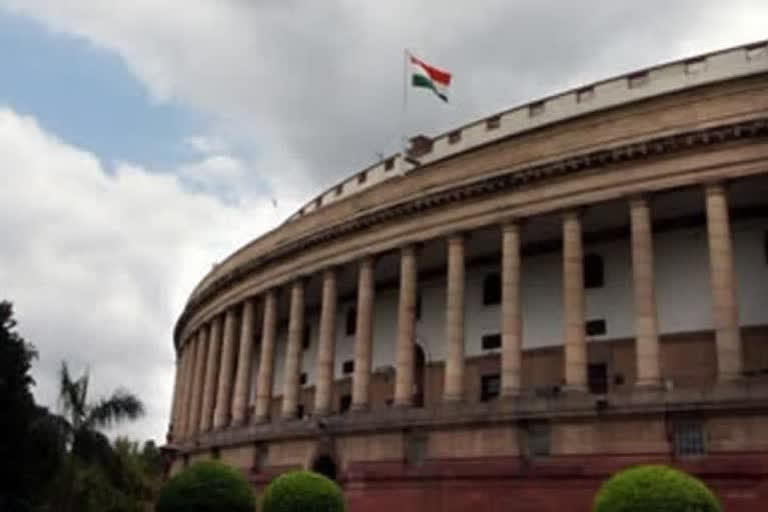Hyderabad: The deaths of nearly four lakh farmers in the past five years illustrate the deepening crisis in the country's agricultural sector. Key bills introduced by the NDA government to consolidate the agrarian economy and provide an umbrella for farmers' welfare have caused outrage among peasants in Punjab and Haryana and caused a stir in the Upper House.
The controversial Bills were easily passed in the Lok Sabha, but the ruling coalition was embroiled in controversy with the resignation of a Shiromani Akali Dal minister. The atmosphere in which parties like BJD, AIADMK, TRS, Trinamool and Akali Dal have been simmering as an anti-NDA camp, has raised tensions in the Upper House.
The parties, who weighed the bills as detrimental to the interests of farmers, insisted that the Bills be referred to a select committee for a comprehensive review or that a proper voting be conducted. Meanwhile, the situation worsened and the heroic unruly acts of the honourable members intensified.
The announcement that the Bills were passed by a voice vote in that pandemonium raises fundamental doubts. Why did the NDA not send the bills that would have serious implications on the lives of more than half of the country's population to the Select Committee and get a report within three months; discuss them in the House, rectify errors if any, and approve improved and acceptable bills through a proper voting process?
It is unfortunate that in the Rajya Sabha, which is considered a Council of states, the voice of the respective states is not being heard and secondly, the opposition camp has become unruly disregarding the decorum and decency of the House. The day that led to the suspension of the eight members will remain as the darkest day in the history of the Upper House.
Read: Rajya Sabha bids farewell to 11 retiring members
"Parliament is not just a legislative body; it is a forum for debate. We all have to render valuable services in that regard," urged Dr Sarvepalli Radhakrishnan in the first session of the Rajya Sabha in May 1952. Although Pandit Nehru decided that combination of both the Houses is the Parliament of India, there was a big debate then in the Constituent Assembly on the need for the necessity of the House of Elders.
There was a loud and clear argument those days that the party in power may sometimes make legislations in the Lok Sabha for political reasons and that there is the need of another House to closely scrutinize the legislations. The Rajya Sabha was born out of the optimistic view that the bicameral system of Houses with skilled and highly capable members will be ideal to make an in-depth review of the legislative proposals and the combined wisdom will do a lot of good to the country.
The words of one of the famous Presidents, George Washington that, "The Upper House is like a saucer that cools the fuming hot legislations" explains how pragmatic the Upper House should conduct itself while in session.
The Rajya Sabha, which should set an example of restraint and balanced thought, is turning into a stage of rage and unruly behaviour and is becoming a worry to sane thinkers. The supreme legislative bodies of the country should assign high priority to lofty parliamentary practices and stand as ideal examples to the Assemblies across the country.
Read: Rajya Sabha adjourned sine die
What message are the ruling and opposition parties giving to the entire country with their unruly and aggressive behaviour? Mahatma Gandhi said that doing good is not just enough but doing good justly also is as important.
Though many farmers' unions and state governments are expressing doubts on the bills, it is unreasonable for the central government to go ahead without a comprehensive discussion and proper review. If the basic awareness that Parliament is not only a place for legislation but also is a forum for thorough discussions is lacking, extreme despondency grips as to which way is the Indian democracy leading to?



